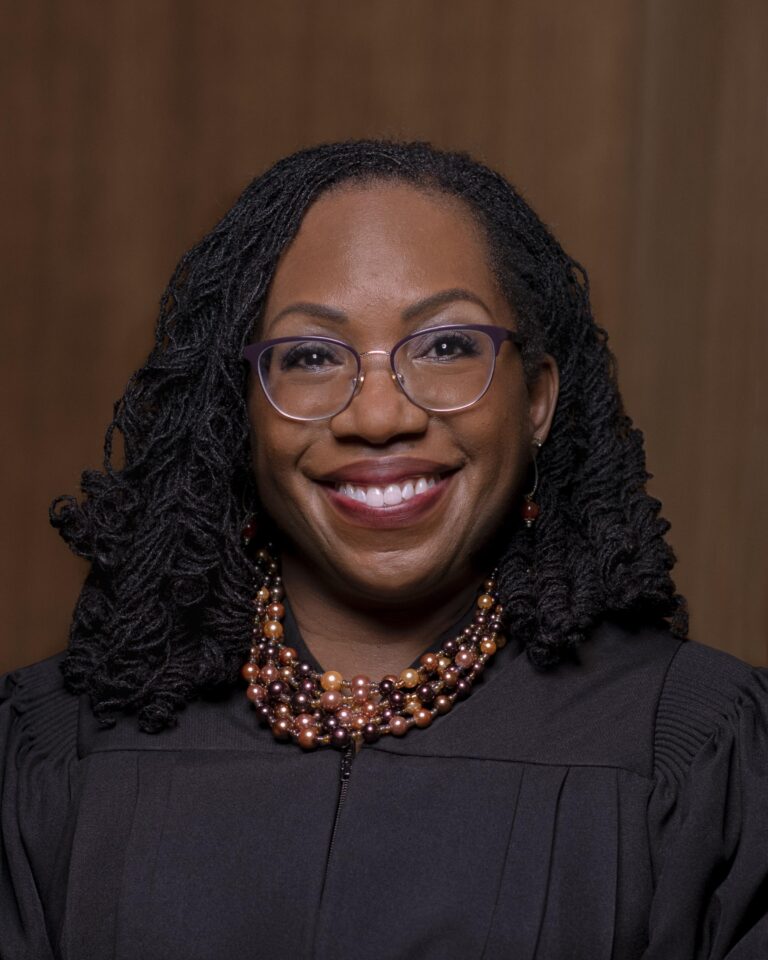U.S. Supreme Court Justice Ketanji Brown Jackson is set to speak at the University of Virginia on September 18, marking a significant moment for the campus community. As the first Black woman to be appointed to the nation’s highest court, Justice Jackson’s appearance at UVA provides a unique opportunity for students, faculty, and the public to engage with a leading figure in American jurisprudence. The event promises to offer insights into her legal career, the judiciary’s role in society, and contemporary issues facing the Supreme Court.
U.S. Supreme Court Justice Ketanji Brown Jackson to Address UVA Community on Judicial Perspectives
On September 18, the University of Virginia will welcome Justice Ketanji Brown Jackson for an exclusive address that promises to illuminate the evolving dynamics of the American judiciary. As the first Black woman to serve on the U.S. Supreme Court, Justice Jackson brings a wealth of experience and a unique judicial perspective that resonates deeply with contemporary legal and social issues. Attendees can expect insights into the interpretive challenges facing the Court and reflections on the role of fairness and equity in judicial decision-making.
The event will cover several key themes related to Justice Jackson’s tenure and her broader vision for the judiciary, including:
- Judicial independence and impartiality
- Balancing precedent with evolving societal norms
- Access to justice and the law’s impact on everyday life
- The future trajectory of constitutional law
Attendees are encouraged to engage in the rich dialogue following the presentation, fostering a deeper understanding of the judiciary’s critical role within American democracy.
Focus on Justice Jackson’s Impact on Legal Diversity and Inclusion
Justice Ketanji Brown Jackson’s tenure on the U.S. Supreme Court marks a transformative milestone in the pursuit of legal diversity and inclusion. As the first Black woman to serve on the nation’s highest bench, her presence itself challenges long-standing barriers, inspiring aspiring jurists from historically underrepresented communities. Beyond symbolism, Justice Jackson has actively advocated for equity within the judiciary, emphasizing the importance of diverse perspectives in shaping fair and nuanced legal interpretations.
Her impact resonates through several key initiatives and viewpoints she has championed:
- Championing equitable representation: Highlighting the need for courts to reflect the demographics of the populations they serve.
- Promoting inclusive legal education: Encouraging law schools and judicial bodies to incorporate diverse historical and cultural contexts.
- Addressing systemic biases: Advocating reforms aimed at reducing racial and socioeconomic disparities in sentencing and access to justice.
| Aspect | Justice Jackson’s Contribution |
|---|---|
| Diversity Advocacy | First Black woman Supreme Court Justice |
| Judicial Philosophy | Focus on fairness and equity |
| Legal Reform | Supports bias reduction in sentencing |
| Educational Outreach | Promotes inclusive curricula |
Insights into Contemporary Supreme Court Challenges from Justice Jackson
Justice Ketanji Brown Jackson offered a candid glimpse into the multifaceted challenges facing the U.S. Supreme Court today. Highlighting the court’s evolving role in shaping national policy, she emphasized the delicate balance between legal interpretation and societal impact. Justice Jackson pointed out that modern cases are increasingly complex, involving nuanced questions about constitutional rights, technology, and social justice ‚ÄĒ areas where precedents must be thoughtfully reconsidered without undermining legal stability.
During her presentation, she identified key areas demanding careful judicial scrutiny, including:
- Data privacy and cybersecurity ‚ÄĒ addressing how laws adapt to rapid technological advances.
- Voting rights and electoral integrity ‚ÄĒ ensuring fair access amid shifting political landscapes.
- Environmental regulations ‚ÄĒ balancing economic interests with climate imperatives.
- Freedom of speech in digital spaces ‚ÄĒ redefining limits in an era of social media.
| Issue | Judicial Challenge | Potential Impact |
|---|---|---|
| Data Privacy | Interpreting outdated statutes | Protecting individual rights in tech age |
| Voting Rights | Preventing disenfranchisement | Safeguarding democratic participation |
| Environmental Law | Balancing regulation with growth | Ensuring sustainable policies |
| Freedom of Speech | Defining limits in digital forums | Maintaining open but responsible discourse |
Recommendations for Engaging with Judicial Processes Inspired by Justice Jackson’s Talk
Justice Jackson emphasized the importance of active participation and well-informed engagement in the judicial process. She encouraged individuals not to view the courts as distant or inaccessible institutions but as essential pillars of democracy where every voice matters. To effectively engage, one should prioritize educating themselves on court procedures and contemporary legal issues, attending public hearings when possible, and following landmark cases to understand their implications on society. This proactive approach fosters transparency and builds public trust in judicial decisions.
Moreover, Justice Jackson highlighted that respectful dialogue and constructive criticism are key to enriching judicial processes. She urged citizens to support efforts that increase diversity within the legal system, which can lead to broader perspectives and fairer outcomes. Below is a practical guide developed from her remarks, aimed at fostering meaningful engagement with the judiciary:
- Stay Informed: Subscribe to legal newsletters and follow credible news outlets for court updates.
- Attend Open Court Sessions: Visit local or federal courthouse sessions to observe judicial proceedings firsthand.
- Engage Respectfully: Offer thoughtful feedback through public comment forums or community discussions.
- Support Inclusivity: Advocate for diversity initiatives in judicial appointments and law schools.
To Wrap It Up
Justice Ketanji Brown Jackson’s appearance at UVA on September 18 underscored her commitment to engaging with the next generation of legal minds and reinforcing the vital role of the judiciary in American democracy. Her insights not only highlighted her distinctive path to the Supreme Court but also inspired students and faculty alike to consider the evolving landscape of law and justice. As UVA continues to host influential voices like Justice Jackson, the university reaffirms its dedication to fostering informed dialogue on critical national issues.




